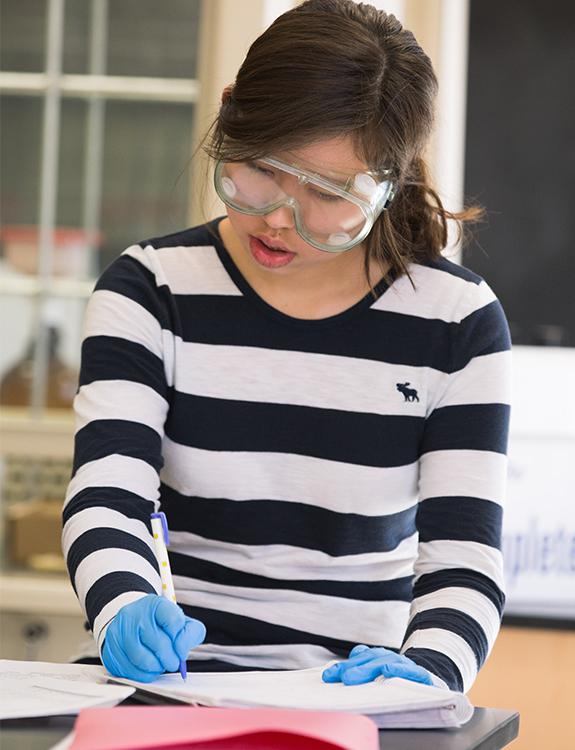Forensic Investigation
Understand forensic investigation professional practice through theory and hands-on experiences in the classroom, laboratory and field.

As a forensic investigator, you'll identify and preserve evidence encountered through criminal investigations.
Waynesburg University's Forensic Investigation program enables students to develop an understanding of the principles and techniques utilized by forensic practitioners during criminal investigations and at the crime scene. In this program, you will gain a practical understanding of the capabilities and limitations of scientific analyses of physical evidence.
In addition to gaining instrumental/methodological experience, you will learn the importance of the scientific method and forensic pattern interpretation, gain crime scene processing and evidence handling experience, and learn critical aspects of the criminal justice system and more.
What Sets Us Apart
Learn in state-of-the art facilities
The Stewart Science building is a five-story complex that houses several science departments, and is home to newly renovated chemistry laboratories. The labs contain suites of advanced equipment that all students have direct access to, where you can learn to troubleshoot and work independently. Our curriculum and laboratory program have been approved by the American Chemical Society for over 50 years. The ACS is the world leader in chemical development.
Make valuable connections
All Chemistry students have many opportunities to get involved in events, camps, labs, and organizations to enhance research, networking, public speaking, and more. Each month, our students can attend the Society of Analytical Chemists of Pittsburgh meeting to network with area professionals. Many of our students have made great contacts and found jobs through this experience.
Participate in faculty research
Each of our faculty members runs an active research program that you can join, encompassing topics such as drug identification, arson investigation, and latent print analysis. Our forensics faculty have extensive experience, which means that you’ll see and hear about real, practical connections between your coursework and future practice.
Get involved in ACS
You can also become a member of the Waynesburg University American Chemical Society Student Chapter, which has been ranked as an outstanding student chapter for the past nine years. You can get involved in one of the most active chapters in the country, enabling you to make significant connections to your future professional life.